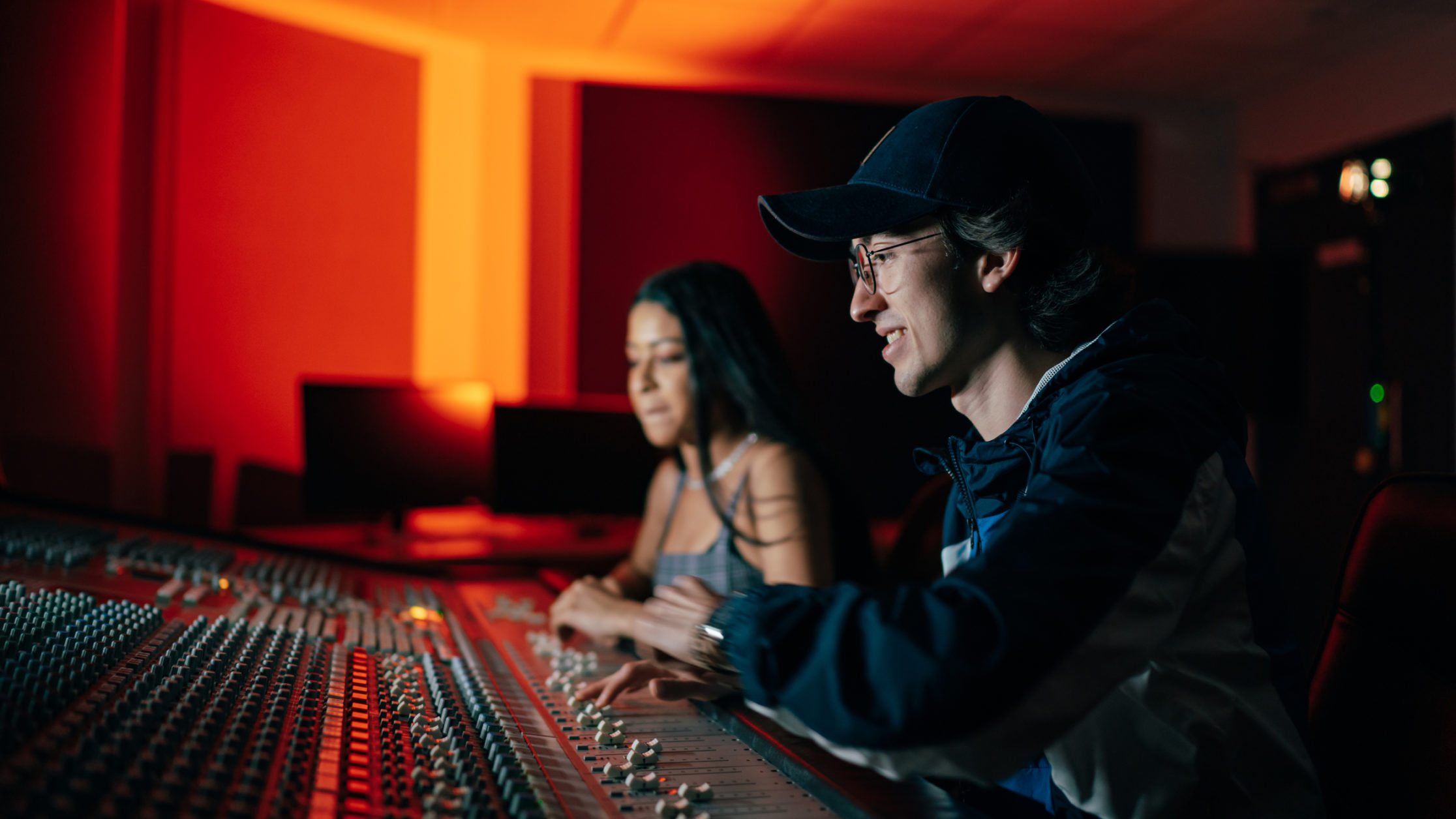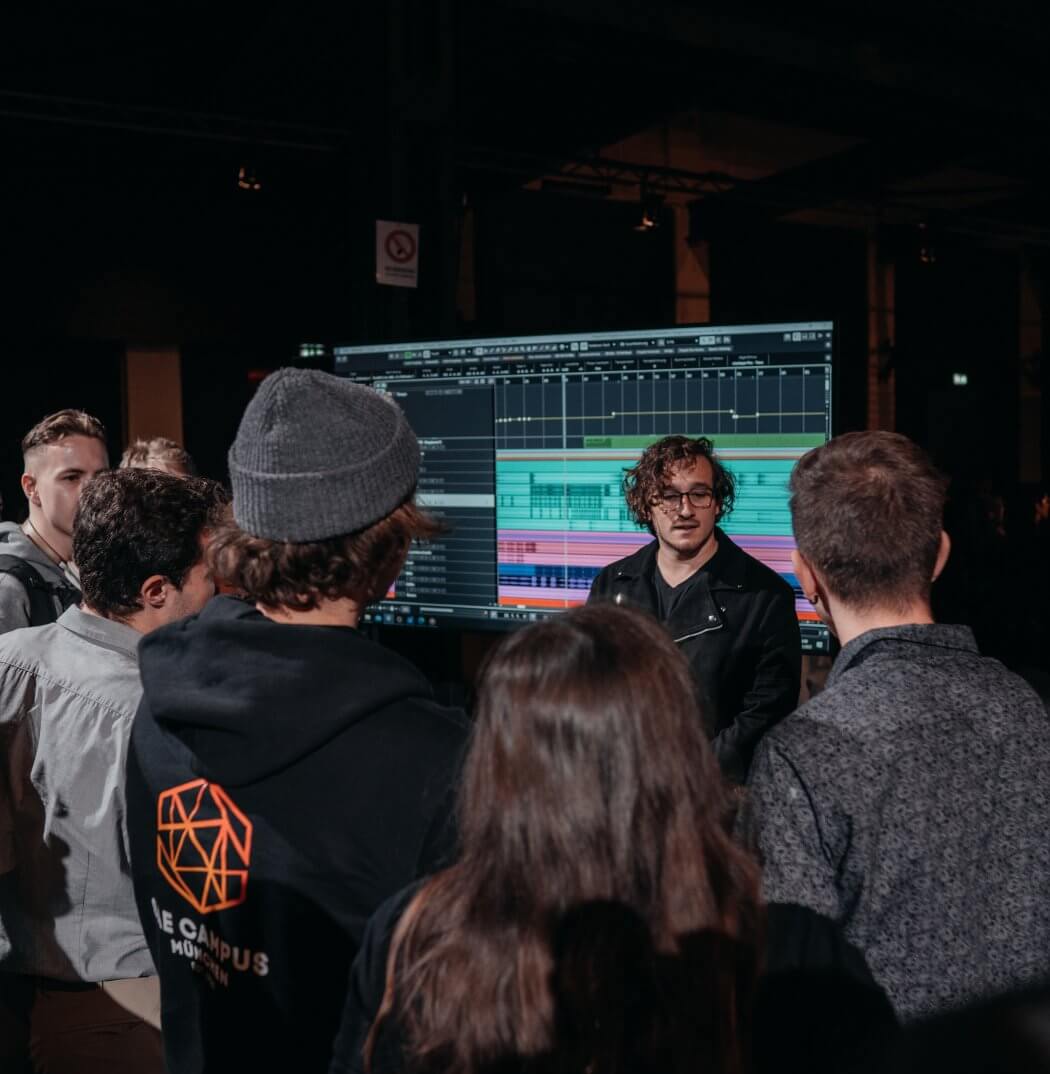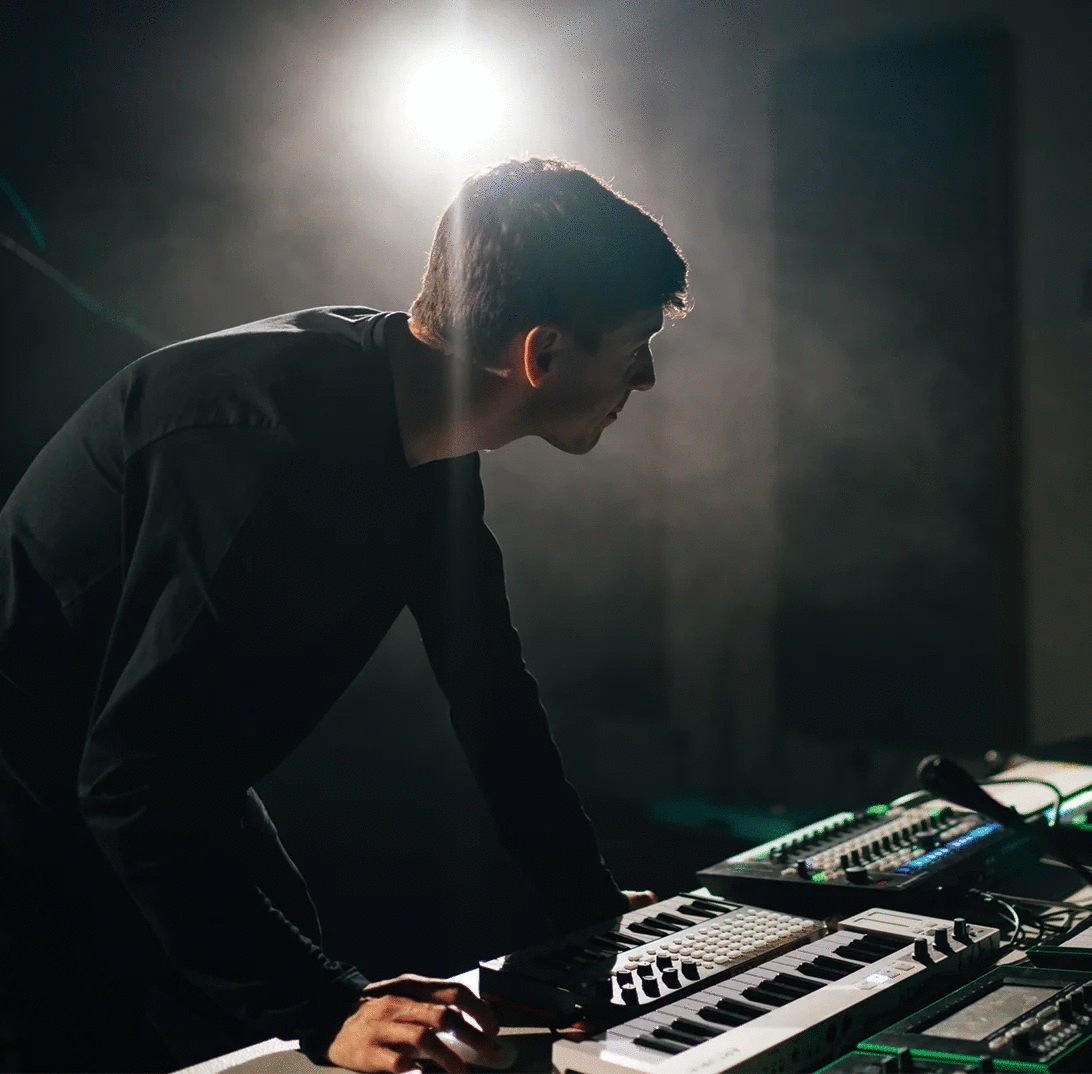Audio Production Diploma

March and September 2025
Students studying higher education courses may be eligible for various forms of funding, including student loans and grants. There may be some differences depending on the region you come from.
Minimum age 17 years and intermediate level of education
Our diploma courses start from scratch, so you don’t need to have any prior technical knowledge.
English language proficiency certificate (Level CEFR-B2)
To be able to study in Amsterdam, you need a residence permit for the entire duration of your studies.
On this page, you will get a detailed insight into the course content of the Audio Production Diploma. You will find out everything you need to know to get started straight away.
Your career in Audio Begins now
Course Structure
Recording in different studios and outdoors, mixing in hardware and software, and the integration of outboard equipment in DAWs are further topics of this module. This often involves music, but also other areas such as original sound and foley recording.
Throughout this module, students will be encouraged to engage in self-reflective processes to improve their creative and collaborative work practices and to build the core skills necessary for a successful career in the creative industries. With the guidance of studio facilitators, students will complete a set of project briefs designed to build on the foundation skills acquired and to further enhance their competencies within their discipline area.
The Audio Production Diploma Course includes:
FAQs
Audio students get the chance to collaborate with other disciplines, there are many opportunities and requirements to collaborate with students from other degrees throughout the course.
Yes, there is an SAE Student Store with discounts available to students who have fully enrolled.
Students can access campus facilities during opening hours. Please contact your campus for timings.
































